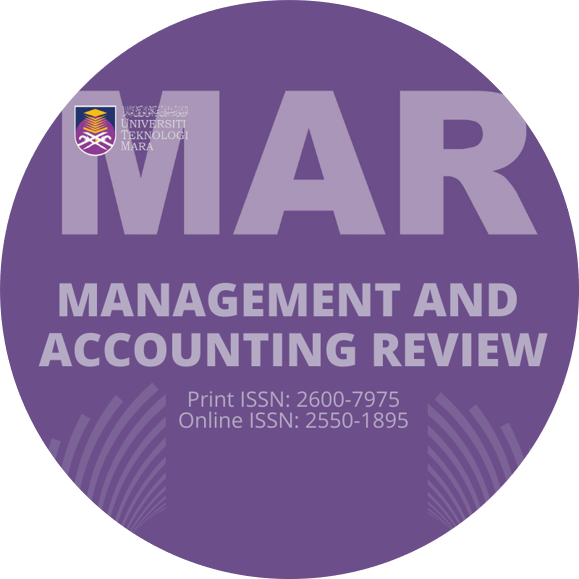Volume 22 No. 1, April 2023
ARTICLE INFO
Article History:
Received: 22 August 2022
Accepted: 14 March 2023
Available online: 01 April 2023
https://doi.org/10.24191/MAR.V22i01-12
MEASURING THE IMPACT OF ABSORPTIVE CAPACITY AND INTERNAL AUDITING ON FIRM PERFORMANCE
Yaser Ibrahem Almodallah1, Suhaily Shahimi2♣ and Anna Azriati Che Azmi2
1Graduate School of Business, Faculty of Business and Economics, University of Malaya, Kuala Lumpur, Malaysia
2Department of Accounting, Faculty of Business and Economics, University of Malaya, Kuala Lumpur, Malaysia
ABSTRACT
This study aimed to investigate the impact of absorptive capacity (AC) and internal auditing on firm performance. Specifically, it had three main objectives. The first was to investigate the internal auditing characteristics affecting potential AC. The second was to investigate the mediating effect of the internal control system on the relationship between potential and realised AC. The third was to examine the mediating effect of internal auditing processes on the relationship between realised AC and firm performance. This study employed a quantitative method i.e. survey questionnaires distributed to internal auditors and secondary data collection from annual reports of companies listed the Amman Stock Exchange. Return on assets and return on equity were extracted from 2014 to 2018 annual reports. The results indicated that internal auditing characteristics influence potential AC, which impacted the internal control system; the internal control system mediated the relationship between potential and actual AC and realised AC influences internal auditing processes, which in turn served as a mediator between realised AC and firm performance. This study applied the AC theory to internal auditing to provide insights. The evidence also highlights the benefits of utilising information technology in internal auditing.
Keywords: Absorptive Capacity Theory, Information Technology, Internal Auditing





